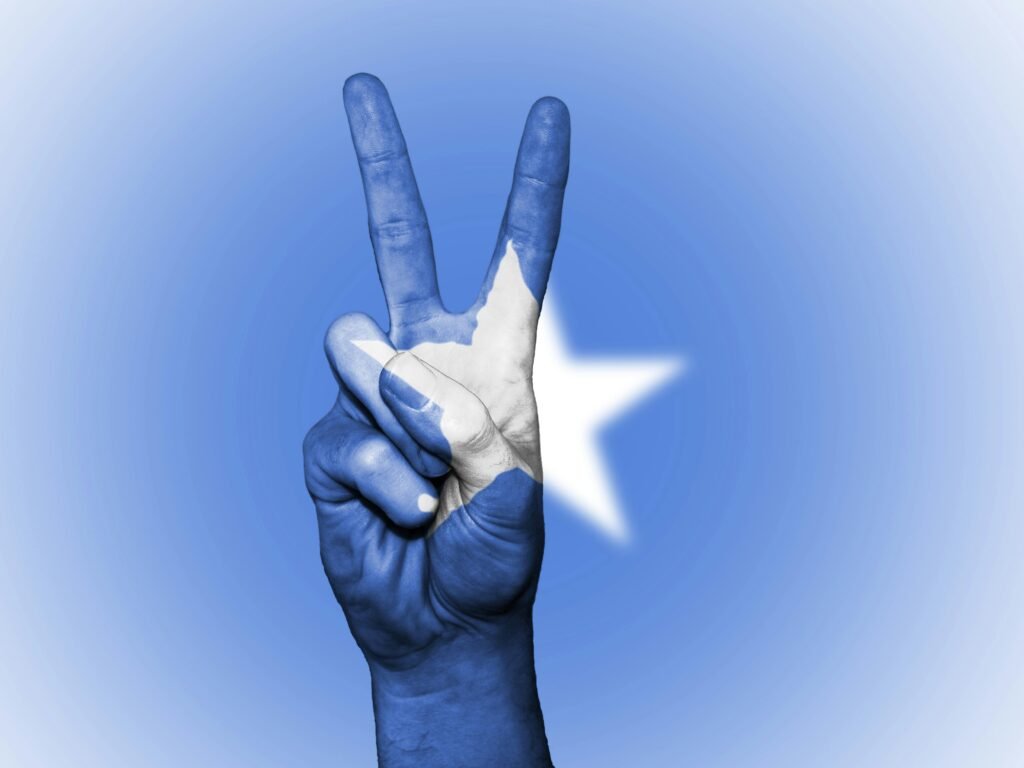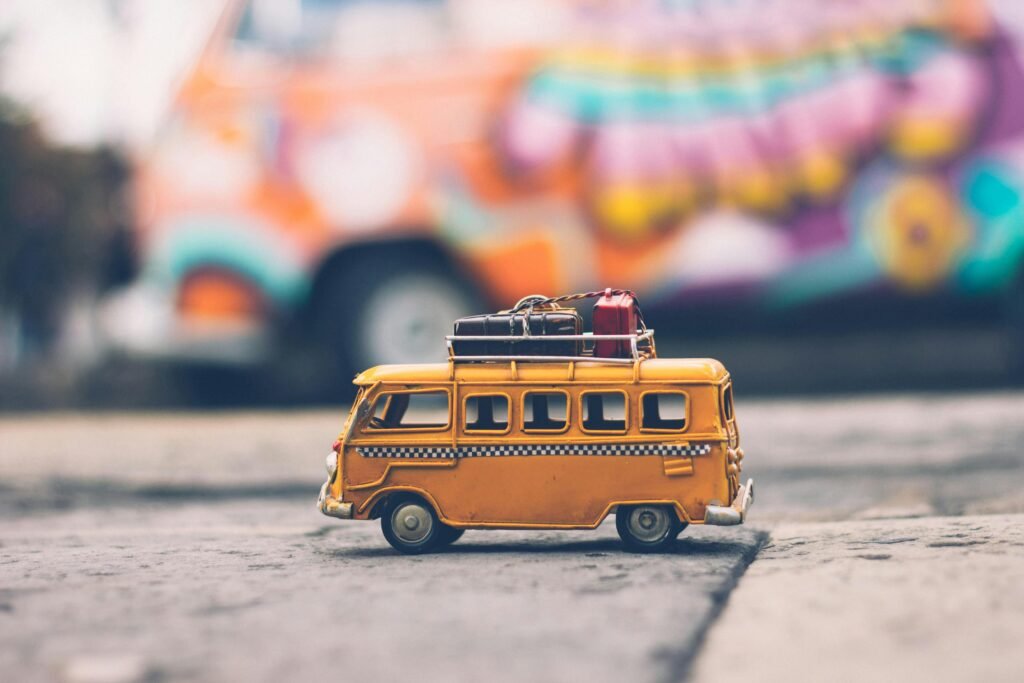
Introduction
Travel to Somalia is an adventure that promises a unique blend of culture, history, and breathtaking landscapes. Nestled in the Horn of Africa, Somalia is a country often misunderstood but brimming with undiscovered treasures. From its pristine beaches along the Indian Ocean to the ancient rock art of Laas Geel, Somalia offers an unparalleled experience for intrepid travelers.
Despite its challenges, Somalia is steadily gaining attention as a destination for those seeking off-the-beaten-path adventures. Whether you’re drawn by its vibrant markets, rich traditions, or untouched natural beauty, a journey to Somalia is sure to be unforgettable.
In this blog, we’ll guide you through everything you need to know about traveling to Somalia. From essential travel requirements and the best places to visit to safety tips and cultural insights, this comprehensive guide will help you plan a safe, enriching, and memorable trip to this fascinating country.
Why Travel to Somalia
Somalia is a destination unlike any other, offering a rich tapestry of experiences that cater to adventurous spirits and cultural enthusiasts. Here’s why Somalia should be on your travel list:
Unspoiled Natural Beauty
Somalia boasts stunning coastlines along the Indian Ocean, featuring crystal-clear waters and untouched beaches like those in Berbera and Mogadishu. The breathtaking Iskushuban Waterfalls are a hidden gem for nature lovers.
Rich Historical Heritage
Somalia is home to historical sites like Laas Geel, where ancient rock paintings offer a glimpse into early human civilization. The Mogadishu Cathedral and other remnants of colonial history also provide fascinating insights into the country’s past.
Essential Travel Requirements for Somalia

Before embarking on your journey, it’s crucial to understand the **travel requirements for Somalia** to ensure a smooth and hassle-free experience. Here’s what you need to know:
Visa Requirements
Most travelers need a visa to enter Somalia. Visas are usually obtained through Somali embassies or consulates in your home country. Some travelers may qualify for a visa on arrival, but it’s best to verify this with the Somali government or your local embassy before traveling.
Passport Validity
Ensure your passport is valid for at least six months beyond your intended departure date. It’s a standard requirement for international travel and will prevent unnecessary complications.
Vaccinations and Health Precautions
Somalia requires proof of yellow fever vaccination for travelers arriving from countries where the disease is a risk. Other recommended vaccinations include hepatitis A, typhoid, and routine immunizations. Malaria is present in Somalia, so consult your doctor about preventive medications.
Travel Insurance
Comprehensive travel insurance is essential when visiting Somalia. Make sure your policy covers medical emergencies, evacuation, and trip cancellations, as these can be costly without adequate coverage.
Security Considerations
Due to the complex security situation in some parts of Somalia, it’s essential to stay informed about the latest developments. Research areas that are safe for travel and consider hiring a local guide to assist with navigation and safety.
Money and Currency
The Somali Shilling is the local currency, but US dollars are widely accepted in major cities. Ensure you carry cash, as ATMs and credit card facilities are limited.
Entry and Exit Points
Mogadishu’s Aden Adde International Airport is the primary entry point for international travelers. There are also regional airports, such as Egal International Airport in Hargeisa, serving Somaliland.
By meeting these travel requirements, you’ll be well-prepared to enjoy your journey to Somalia while ensuring your safety and comfort.
Best Time to Travel to Somalia

Understanding the climate and seasons in Somalia can help you plan the most enjoyable and comfortable trip. With a predominantly arid climate, Somalia experiences warm temperatures year-round, but specific periods are more favorable for travel.
Climate Overview
Somalia has a hot, dry climate with occasional rainfall, divided into four main seasons:
- Jilal (December to March): The dry season with high temperatures and minimal rainfall, making it one of the best times to visit.
- Gu (April to June): The main rainy season with occasional heavy downpours. Travel during this time can be challenging due to muddy roads and potential flooding.
- Xagaa (July to September): A hot, dry season following the Gu rains. This period is suitable for beach visits, particularly along the coast.
- Deyr (October to November): A shorter rainy season, marked by light to moderate rainfall.
High Season for Tourism
The best time to visit Somalia is typically during the dry seasons, particularly from December to March and July to September. These periods offer ideal conditions for exploring outdoor attractions, historical sites, and beaches.
Events and Festivals
Somalia has a few cultural and religious events that travelers may find fascinating:
- Eid al-Fitr and Eid al-Adha: Celebrated nationwide, these Islamic holidays are marked by communal prayers, feasts, and festive gatherings.
- Somali Independence Day (July 1): A day of national pride and celebrations, particularly in Mogadishu.
Tips for Planning Your Trip
- Check weather forecasts and local conditions before traveling, especially during the rainy seasons.
- If you’re planning a beach vacation, visit during the hot, dry months to enjoy the best of Somalia’s stunning coastline.
- Be mindful of religious and cultural practices during Ramadan, as this may affect the availability of services.
By choosing the right time to visit Somalia, you can make the most of your journey and enjoy the country’s diverse attractions in their full glory.
5. **Top Places to Visit in Somalia**
Top Places to Visit in Somalia

Somalia is a treasure trove of fascinating destinations, offering a mix of natural beauty, historical significance, and cultural richness. Whether you’re drawn to its ancient heritage or stunning coastlines, these must-visit places will make your journey to Somalia unforgettable.
Mogadishu: The Vibrant Capital
As the heart of Somalia, Mogadishu is a bustling city that blends modernity with tradition.
- Lido Beach: A popular spot with white sands and turquoise waters, perfect for relaxation and water sports.
- Bakara Market: A lively marketplace where you can experience Somali trade and culture firsthand.
- Mogadishu Cathedral: An architectural remnant of Italian colonial history, now a poignant landmark.
Laas Geel: Ancient Rock Art
Located near Hargeisa, Laas Geel is home to some of the oldest and most well-preserved rock art in Africa. The vibrant paintings, dating back thousands of years, depict scenes of pastoral life and provide a glimpse into early Somali culture.
Berbera: Coastal Charm
Berbera, a port city in Somaliland, is renowned for its stunning beaches and underwater wonders.
- Beachside Relaxation: Enjoy tranquil sands and crystal-clear waters.
- Snorkeling and Diving: Explore vibrant coral reefs teeming with marine life.
Kismayo: A Hidden Gem
This serene city in southern Somalia offers a peaceful escape from urban hustle.
- Goanile Beach: A pristine stretch of coastline perfect for unwinding.
- Local Markets: Sample fresh seafood and handmade crafts.
Iskushuban Waterfalls: A Natural Wonder
Tucked away in the Bari region, the Iskushuban Waterfalls cascade beautifully amid lush greenery. This lesser-known gem is ideal for nature lovers and photographers.
Hargeisa: Cultural and Historical Hub
As the capital of Somaliland, Hargeisa offers a mix of urban vibrancy and historical intrigue.
- Hargeisa War Memorial: A tribute to the country’s resilience and history.
- Local Markets: Shop for traditional textiles, jewelry, and Somali arts.
Xeebta Jasiira (Jasiira Beach)
Located just outside Mogadishu, this serene beach is known for its calm waters and idyllic scenery, making it a favorite among locals and visitors alike.
Adale Beach
A pristine coastal destination in the Middle Shabelle region, perfect for travelers seeking solitude and unspoiled nature.
Somalia’s diverse attractions cater to a wide range of interests, from history and culture to natural beauty and adventure. By including these incredible destinations in your itinerary, you’re sure to have a trip filled with unforgettable moments.
What to Eat: Somali Cuisine

One of the highlights of visiting Somalia is the opportunity to indulge in its rich and flavorful cuisine. Somali food reflects a blend of cultural influences, including Arabic, Indian, and Italian flavors, while maintaining its unique identity. Here are some must-try dishes and dining experiences:
Popular Somali Dishes
- Sambusa: A crispy, triangle-shaped pastry filled with spiced meat or vegetables. Often served as a starter or snack, it’s a crowd favorite.
- Anjero: A sourdough flatbread similar to injera, typically eaten for breakfast with honey, butter, or a stew.
- Bariis Iskukaris: A spiced rice dish cooked with meat, vegetables, and aromatic spices like cardamom and cloves, reminiscent of biryani.
- Muqmad: Dried, spiced camel or beef meat, often eaten with flatbread and tea.
- Canjeero with Suugo: A combination of Somali flatbread topped with a tomato-based meat sauce, influenced by Italian cuisine.
Seafood Delights
With its extensive coastline, Somalia is a paradise for seafood lovers.
- Grilled Fish: Freshly caught fish seasoned with Somali spices and grilled to perfection.
- Seafood Stew: A hearty dish made with fish, crab, or shrimp in a spiced coconut milk base.
Traditional Beverages
- Shaah (Somali Tea): A spiced black tea infused with cardamom, cinnamon, and cloves. It’s a staple drink served throughout the day.
- Qaxwo (Somali Coffee): A unique coffee preparation often flavored with cardamom and served sweetened.
- Tamarind Juice: A refreshing drink made from tamarind pulp, sugar, and water.
Desserts and Sweets
- Halwa: A sticky, sweet confection made with sugar, ghee, and spices like cardamom and nutmeg.
- Macsharo: Sweet fried dough, similar to doughnuts, often enjoyed as a treat.
Where to Eat
- Local Restaurants: Try authentic Somali meals in local eateries, especially in cities like Mogadishu and Hargeisa.
- Beachside Cafes: Enjoy fresh seafood with a view at coastal spots in Berbera or Mogadishu.
- Home Dining: If invited to a local home, embrace the opportunity to experience true Somali hospitality and home-cooked meals.
Somali cuisine is a delightful blend of hearty, flavorful dishes that reflect the country’s rich cultural heritage. Sampling the local food is not just a culinary adventure but also a way to connect with the heart and soul of Somalia.
Cultural Etiquette and Customs in Somalia

Understanding and respecting Somali cultural customs and etiquette is essential for a smooth and enjoyable trip. The Somali people are known for their hospitality and strong cultural values, so showing respect for their traditions will enhance your experience and help you build positive connections. Here are some key cultural tips to keep in mind when traveling to Somalia:
Dress Modestly
Somalia is a predominantly Muslim country, and modest dressing is highly valued. Both men and women should wear clothing that covers the shoulders, chest, and knees.
- Women are often expected to wear long dresses or skirts and may also wear a headscarf, particularly when visiting mosques.
- For men, wearing long pants and shirts is appropriate in public places.
Greetings and Social Etiquette
- Handshake: A handshake is a common form of greeting. However, in many cases, men and women do not shake hands with each other, especially in rural areas. It’s polite to wait for the woman to offer her hand if she chooses to do so.
- Showing Respect: When greeting elders, it’s customary to lower your gaze as a sign of respect.
- Use of Titles: In Somali culture, titles such as “Aabaha” (Father) and “Hooyo” (Mother) are often used to show respect when addressing older individuals.
Sharing Meals
- Hospitality: Somali hospitality is legendary, and if you’re invited into someone’s home, it’s important to accept the invitation as a sign of respect.
- Eating Etiquette: Meals are often shared from a communal dish. It’s common to eat with your right hand, as the left hand is considered impolite for eating or giving.
- Tea Rituals: Somali tea (shaah) is an important part of social gatherings. When offered tea, it’s considered impolite to refuse.
Respecting Religion
- Prayer Times: Prayer is an essential part of daily life for Somalis. Be mindful of prayer times, especially in the mornings and evenings, as many shops and restaurants may close briefly for prayer.
- Ramadan: During the month of Ramadan, Muslims fast from sunrise to sunset. While you are not required to fast, it’s respectful to avoid eating or drinking in public during daylight hours.
Public Behavior
- Quiet and Calm: Public displays of affection, such as kissing or holding hands, are frowned upon. Similarly, loud or disruptive behavior is considered disrespectful.
- Smoking: Smoking is common, but be mindful not to smoke in restricted places, such as mosques, and always be considerate of non-smokers.
Gift Giving
- Bringing Gifts: If invited to someone’s home, it’s thoughtful to bring a small gift as a gesture of appreciation. Local handicrafts or sweets are excellent options.
- Opening Gifts: When giving a gift, it’s customary to present it with both hands. When receiving a gift, express your gratitude warmly.
By adhering to Somali customs and etiquette, you’ll show respect for the local culture and create meaningful interactions with the Somali people. These thoughtful gestures will help make your travel experience not only enjoyable but also deeply enriching.
Safety Tips for Traveling to Somalia

While Somalia is a beautiful and culturally rich destination, it’s important to be aware of safety considerations before you go. By taking the right precautions, you can enjoy your trip while minimizing risks. Here are some essential safety tips to keep in mind when traveling to Somalia:
Stay Informed About Security
- Check Travel Advisories: Before traveling to Somalia, it’s crucial to check the latest travel advisories issued by your government or international organizations. Some areas of the country may have security concerns due to ongoing conflicts or instability.
- Research Safe Regions: Major cities like Mogadishu, Hargeisa, and Berbera are generally considered safer for travelers, especially in Somaliland. However, some rural areas or regions near the borders may pose higher risks. Make sure to plan your trip around areas with fewer security concerns.
Hire Local Guides
- Guides for Safe Navigation: Having a local guide can significantly enhance your safety and provide valuable insights into the region. Local guides are familiar with the terrain, security situations, and customs, ensuring you stay safe and informed throughout your journey.
Avoid Night Travel
- Stick to Daylight Hours: Avoid traveling at night, especially in unfamiliar areas. Roads can be poorly lit, and certain regions may become riskier after dark. Plan your activities and transport during daylight hours to minimize risks.
Health and Medical Precautions
- Get Vaccinated: Make sure you are up to date on vaccinations such as hepatitis A, typhoid, and yellow fever. It’s also advisable to take malaria prophylaxis if you’re traveling to areas where malaria is common.
- Travel Insurance: Comprehensive travel insurance that covers medical emergencies, evacuations, and cancellations is a must. The healthcare infrastructure in some areas may be limited, so it’s essential to be prepared for unexpected medical situations.
Stay Alert in Crowded Areas
- Keep an Eye on Your Belongings: In busy markets or public spaces, keep your valuables secure and avoid displaying large sums of money or expensive electronics. Petty theft can occur in crowded areas.
- Be Cautious with Strangers: While Somali people are generally welcoming and friendly, it’s important to remain cautious when approached by strangers, especially in more remote areas.
Respect Local Customs and Laws
- Follow Local Regulations: Somali laws and customs can differ greatly from those in your home country. Make sure you familiarize yourself with the local rules, including dress codes, behavior in public, and cultural norms.
- Avoid Sensitive Topics: Discussions related to politics, religion, and sensitive regional issues can be contentious in Somalia. It’s best to avoid engaging in debates about such topics, especially in informal settings.
Emergency Contacts and Communication
- Know Emergency Numbers: Have a list of local emergency contacts, including the embassy or consulate, local hospitals, and reliable taxis or transport services.
- SIM Cards and Internet Access: Consider purchasing a local SIM card upon arrival to stay connected and access important information or maps while traveling.
Respect Local Wildlife and Nature
- Protect the Environment: Somalia’s natural beauty is one of its most attractive features. Be mindful of local wildlife, beaches, and ecosystems, and avoid any activities that may harm the environment.
By taking these safety precautions, you can enjoy a secure and memorable trip to Somalia. Preparing in advance and being aware of the local security situation, health considerations, and cultural customs will ensure you make the most of your travel experience.
Conclusion: Why You Should Travel to Somalia
Somalia is a unique destination that offers rich cultural experiences, breathtaking natural beauty, and a chance to explore a country that remains largely undiscovered by mass tourism. From the bustling markets of Mogadishu to the serene beaches of Berbera, Somalia has something for every kind of traveler. The country’s ancient history, vibrant traditions, and hospitable people make it a place worth visiting for those who seek adventure off the beaten path.
While there are important travel requirements and safety considerations to keep in mind, proper preparation and respect for local customs will help ensure a rewarding journey. Whether you’re exploring historical sites, indulging in delicious Somali cuisine, or soaking in the stunning landscapes, traveling to Somalia offers an unforgettable experience.
By embracing the unique charm of Somalia, you not only gain a deeper understanding of its history and culture but also contribute to its growing tourism sector. So, pack your bags, take the necessary precautions, and get ready to uncover the beauty and history of Somalia — a destination that promises to leave a lasting impression.


